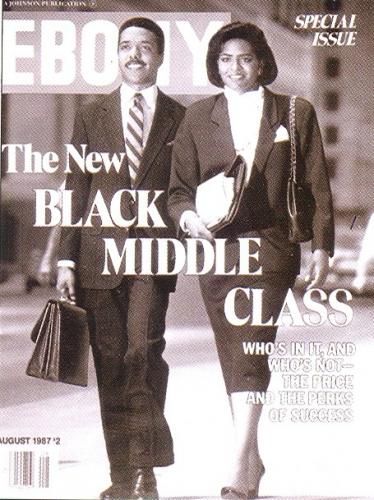Ebony, a pictorial news magazine published by Chicago, Illinois-based Johnson Publishing Company, first appeared in November 1945. Created by John H. Johnson, who modeled his publication after Life magazine, Ebony celebrated African American life and culture by depicting the achievements of black Americans. It honored black identity by portraying black life, refuting stereotypes, and inspiring readers to overcome racial and other barriers to success. John H. Johnson began his career with Negro Digest in 1942, and started Ebony three years later. Both magazines were so successful that in 1972 the Magazine Publishers Association selected Johnson “Magazine Publisher of the Year.” Negro Digest changed its name in 1970 to Black World but ultimately folded; today Johnson Publishing also produces Jet magazine.
Ebony first featured articles about notable African Americans such as celebrities and sports figures, and during the late 1950s ran Dr. Martin Luther King Jr.’s column, “Advice for Living By.” By the 1960s articles supporting civil rights appeared as the magazine provided reliable coverage of the civil rights movement as it unfolded across the United States. Ebony also discussed the increasing opportunities for African Americans, suggested ways to overcome obstacles, and encouraged blacks to exhibit racial pride. Words emphasized continually in the magazine — respect, dignity, pride, recognition, understanding, hope, inspiration — illustrated Johnson’s personal and professional philosophy.
Ebony occasionally presented works by well-established literary figures such as Langston Hughes and Gwendolyn Brooks. It also frequently published special issues, such as the 1963 one hundredth year commemoration of the Emancipation Proclamation, that highlighted issues deemed particularly relevant to African Americans.
Ebony provided a much needed national forum for blacks. Its contents centered on black history, entertainment, business, health, personalities, occupations, and sports. By highlighting the accomplishments of black Americans, the magazine offered its readers new measurements of black success. It has earned a strong national reputation for its celebration of black identity and culture. Ebony continues to inspire an appreciation of the black heritage and commemorates and encourages African American contributions to American society.

